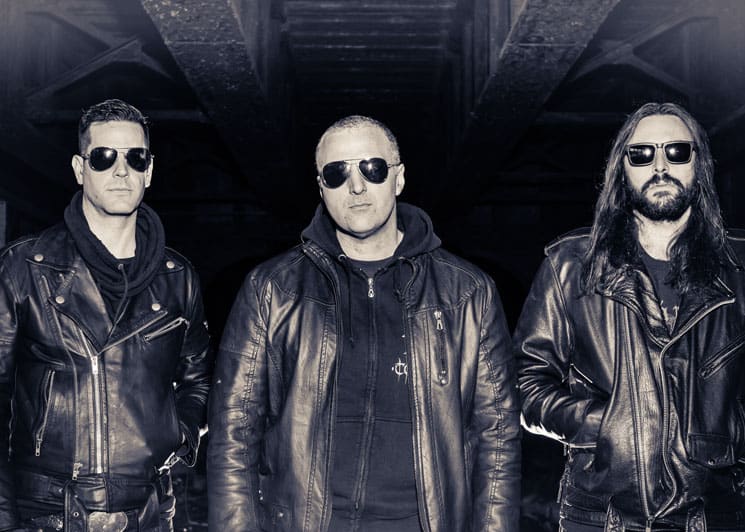Mike Hill has been the principal songwriter, vocalist and bandleader of New York sludge metal outfit Tombs for the last decade, making ambitious, nuanced records that circumvent typical genre markers. And like the wide-ranging Everything Went Black podcast he hosts, Hill uses his love of history and boundless curiosity to inform Tombs as well.
The Grand Annihilation (out now on Metal Blade) is Tombs' fourth LP; on it Hill tackles ideas of individual growth through apocalyptic imagery that illustrate the birth of new eras by examining the deaths of old ones. Exclaim! chatted with Hill about balance, discipline and the estranged relationship between politics and metal.
Connect the Body and the Mind
In addition to his interest in ancient civilizations and philosophies, Hill is an avid martial arts enthusiast. "In our current society, there's this kind of denigration of the expression of physical power, like people kind of turn their nose to that," he tells Exclaim! "I feel like humanity has to have this balance between intellectual and physical pursuits."
Take Care with Politics
Hill is ambivalent about addressing explicit political issues in his music or on his podcast. "To come at politics with an uninformed opinion is very irresponsible," he warns. He's particularly wary of connections drawn between politics and metal. "There's this flirtation that mainstream society has with darkness and antisocial behaviour," he says. "Occasionally, that becomes real and you have a guy like GG Allin [or] Varg from Burzum — you get these people who actually have dark ideas and dark ideologies." Given the way that metal incorporates dark themes and violent imagery, he feels that it will "always be in this purgatory" where social and political ideas have to reckon with misanthropic tendencies.
Embrace Creative Death
Hill's notion of apocalypse is more intimate and optimistic than the bleakness one might imagine. "It's an allegory for a personal life, where you can close the door on one chapter so you can make space for other things," he says.
Tombs went through an almost total lineup change before making this record. As Hill puts it: "When the doorway opens, you either stay on one side or you walk through the threshold. Certain people decided to stay on the other side of the door."
The Grand Annihilation (out now on Metal Blade) is Tombs' fourth LP; on it Hill tackles ideas of individual growth through apocalyptic imagery that illustrate the birth of new eras by examining the deaths of old ones. Exclaim! chatted with Hill about balance, discipline and the estranged relationship between politics and metal.
Connect the Body and the Mind
In addition to his interest in ancient civilizations and philosophies, Hill is an avid martial arts enthusiast. "In our current society, there's this kind of denigration of the expression of physical power, like people kind of turn their nose to that," he tells Exclaim! "I feel like humanity has to have this balance between intellectual and physical pursuits."
Take Care with Politics
Hill is ambivalent about addressing explicit political issues in his music or on his podcast. "To come at politics with an uninformed opinion is very irresponsible," he warns. He's particularly wary of connections drawn between politics and metal. "There's this flirtation that mainstream society has with darkness and antisocial behaviour," he says. "Occasionally, that becomes real and you have a guy like GG Allin [or] Varg from Burzum — you get these people who actually have dark ideas and dark ideologies." Given the way that metal incorporates dark themes and violent imagery, he feels that it will "always be in this purgatory" where social and political ideas have to reckon with misanthropic tendencies.
Embrace Creative Death
Hill's notion of apocalypse is more intimate and optimistic than the bleakness one might imagine. "It's an allegory for a personal life, where you can close the door on one chapter so you can make space for other things," he says.
Tombs went through an almost total lineup change before making this record. As Hill puts it: "When the doorway opens, you either stay on one side or you walk through the threshold. Certain people decided to stay on the other side of the door."
